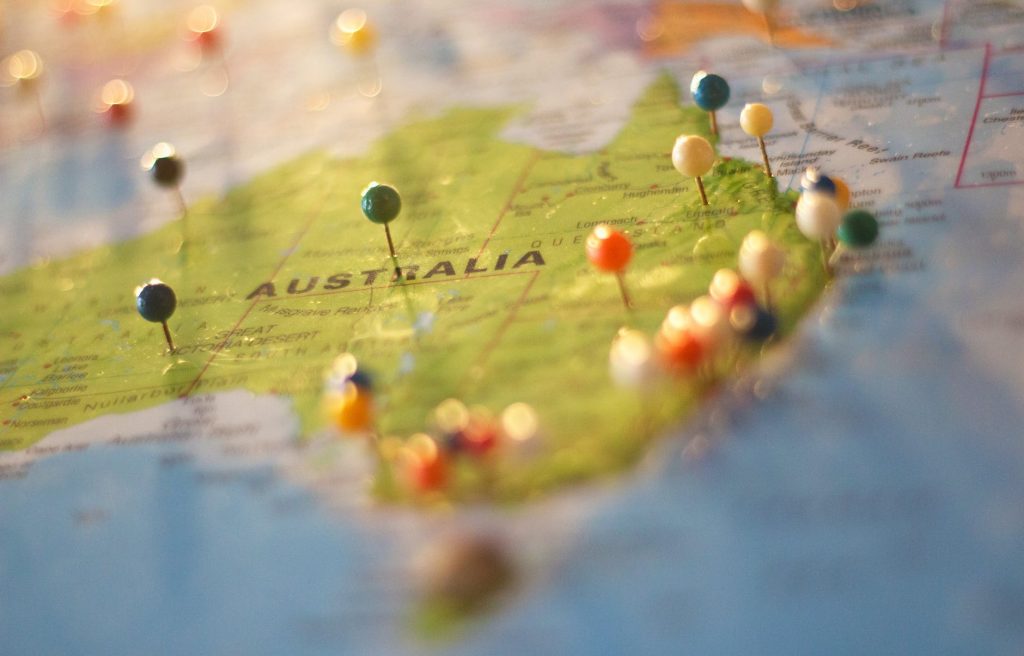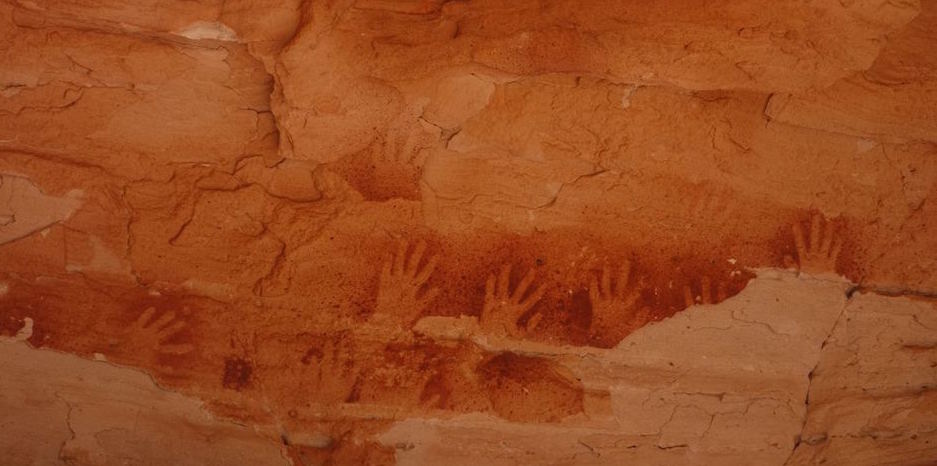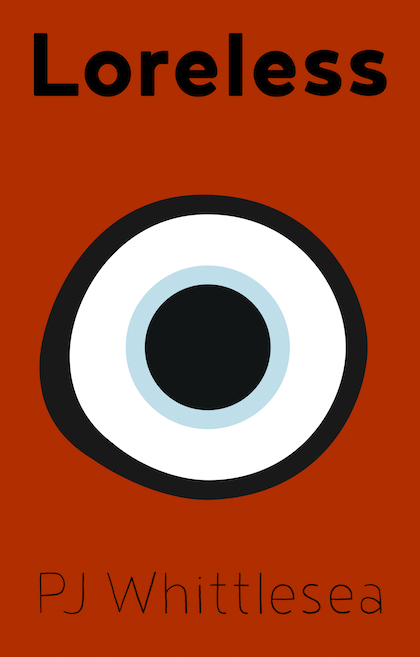Around the World: Who Has the Right to Write About Indigenous Culture?
After Hong Kong, my trip around the world took me back to my birth country: Australia. It had been some years since I had returned and I had assumed the country had progressed. At least in terms of attitudes to the indigenous population.
What I found distressed me. Much had not changed.
In 2016 I began my publishing journey. It all started with a story which had been in my head for years—a story which would not let me go. The passion for this story is what drove me to become an author in the first place.
It was the passion to share my knowledge about what I’d learned in my time with indigenous people in Australia.
The book is called Loreless.
As a child I grew up in outback Australia in an atmosphere of division.
Indigenous Australians and the relatively new European settlers were segregated. Although this was not always obvious, as in the case in South Africa or America where strict laws of segregation existed, there was a stigma attached to indigenous people which left them as the underdog.
Unfortunately this stigma remains until this day.
The Wrong Body
In university I struck up a close friendship with an indigenous man who was battling with the fact he was half-white.
His ancestors and his indigenous culture were his passion. He shunned the fact that he had white blood. His Aboriginality was his focus.
Unfortunately, he had to constantly battle this inequality in his own body. Essentially a black heart beating in a pale body.
Following the Passion
Spurred on by his passion, I set off into Central Australia to find out for myself.
What I found there were a proud, intelligent and tenacious people. People who had maintained an unbreakable link with their culture. People who lived it every day. People who had adapted to the new society that had been forced upon them, but had never lost the connection to their ancestors and their ways.
In some quarters, even now in modern Australia, it is very difficult to talk about the indigenous experience. On my recent trip back to Australia I was confronted with this.
As a white Australian I was told by some I have no right to write from an Aboriginal perspective. At least this is the attitude I was confronted with in the bigger cities. Supposedly anyone without indigenous heritage fell under the cloud of cultural misappropriation if they wished to write about it.
The most disconcerting of all was that often this came from people who supported progress and recognition for indigenous people. And not only white Australians, but also people with indigenous heritage who have grown up in the city.
Even more disconcerting, this opinion was shared by the one person who had encouraged me to go out and find out about his culture all those years before.
It brought me to the point where I became embarrassed to even mention my book. It shocked me that this attitude still existed. It got me thinking about why this is so.
It became apparent to me that even though no official laws exist to do this, urban people had been trained into believing a generalised view of indigenous people as somehow lower in class, antiquated, quaint, a threat and “special”.
Essentially, not human, but a separate class of people. I also saw that this attitude was keeping indigenous people in the same subverted position they had been in since Captain Cook had landed on those distant shores.
A Different Attitude
Fortunately a chance meeting gave me some hope that this was not the way everyone felt.
Late one night on the streets in Adelaide, I ran into two men. They were from outback central Australia. An old man and his much younger relative. We struck up a conversation and I realised I was talking to the same tribal group of people who had initially inspired Loreless.
These men were relaxed, open, willing to share, happy and comfortable about who they were. They were not walking around with a dogma hanging like a dark cloud over them. They were proud of who they were.
The difference was apparent: they were still living their culture.
They weren’t fighting for their rights, they were exercising them. Whereas those who had been brought up in urban European society were clouded by the politics involved, these men were impervious to them. They had an unbreakable bond with their heritage.
Storytellers
They were the same type of people I had met years ago when I was researching what would eventually become Loreless.
The outback community I visited instilled in me a great love for their culture. Even through all the upheaval they had experienced, their culture was strong. It had not only survived, it was alive and kicking. And to ensure it continued to survive it had to be shared.
They did not want to hide it, they wanted more people to know about it.
They were fantastic storytellers. As it was in the past, nothing was written down. Everything was committed to memory. I became the pupil. They sat me down and I listened. For hours on end. Then they encouraged me to spread the word.
I wanted to share their passion. However, I was plagued by the same doubts which I had recently experienced in the city.
As a white Australian, do I have a right to write about the indigenous experience?
The Right to Write
Time and again in rural Australia, where people are still close to their heritage, I was told the same thing: you don’t need permission to write your story. They were the ones who kept telling me:
It’s your story. Nobody else can write it. You have to do it.
Even though this was applied to the difficult theme of writing about the Australian indigenous experience, it is a credo essential to all writers.
The story that is in you is yours. Believe in what you have to say. Only you can write it. If you don’t do that, no one else will.
If it doesn’t get written, the world will be a lesser place because of it.
Use Your Gift to Create Change
If I think about it now, I have been given a gift. I should not squander it.
Not only the gift of writing, but also the gift of stories from the people who have entrusted them with me.
I, in my privileged position as a white man, have the opportunity to share these stories with others worldwide. Something the people who gave them to me could not do.
Considering the current climate with protests raging about racial inequality around the world this is especially important.
You don’t have to go into the desert in outback Australia like I did. You can do it in your own neighbourhood. Take the time to find people to talk to about their experiences. Don’t be afraid of them. They want you to listen. They want to share their stories.
Perhaps, even if they can’t make the world listen, you can use your position of privilege to make sure their story gets heard.
I personally think this is the only way forward.
To find this enlightenment. To listen.
It’s the only way we can bring about true equality where everyone is allowed to be treated as a human being.
Have you been inspired by other cultures?
Leave a comment below or join the mailing list and let me know.





I am glad you are sharing their story and by doing so, you are giving them a form of immortality.
Also, you are in a unique place. Figuratively speaking, you have one foot in two different worlds and learned a new language. Be an ambassador and interpreter to help build bridges between these two worlds.
Thanks for the kind words, Patrick. You reminded me of why I write in the first place.
Sometimes we get too bogged down in other peoples opinions. Again I recall the wise words of the indigenous elder who inspired one of the characters in the book. I was doubting, as a non-indigenous person, whether I had the right to write the story.
He said, ‘It’s your story. Only you can write it.’
Thank you Patrick. I loved reading your book!
Thank you Michael. There are many more to come 🙂
Bozho!
My name is Charles White Jr., and the son of Charles White Sr. I am the Grandson of Dora Alice Evanush, who is the daughter of Clara Ann McLeod and Michel Evanush, and the Granddaughter of Jane Polson and Alexander Joseph McLeod.
I am both Anishinaabe (Ojibway) and Iniwin (Cree) from both Flying Post Nation on Treaty 9 Territory and an off-reserve citizen of the Unceded Timiskaming Nation, both of which are in Northern Ontario/Quebec in Canada and living on the Unceded Territories of the Coast Salish People’s.
Although I am still an ‘Unwilling Participant’ and will be til the day my death certificate is signed, I prefer to say that I’m a Survivor of Child Trafficking, Crimes Against Humanity, and Genocide perpetrated by and through the Mormon Church-Run ‘Indian Student Placement Program-.
Rather than ‘Trauma Dump’ in such a forum, I will just describe my trauma from the time I was roughly 3 years old until this very day, as Torture!
I stand proudly in calling myself a Survivor as no matter what the Mkrmon Church threw at me, even nearly having me murdered by the Royal Canadian Mounted Police during my Mental Health Act Apprehension and Assessment on Jy 23, 2021 yet I still Stand even STRONGER now than ever before, and I know as I continue to grow in my Anishinaabe and Iniwin Traditions, I will become even Stronger than I am now!
Hoka Hay
All Our Relations
Thank you for sharing your story, Charles. I am only just learning about the atrocities committed against indigenous Canadians. Unfortunately, it seems to continue in some form. My heart goes out to you and your people. Stay strong!